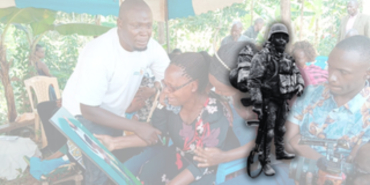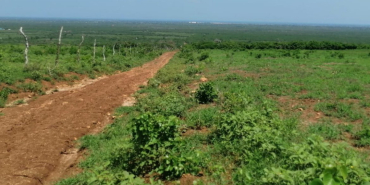Kenyan Woman Arrested in Mumbai Cocaine Smuggling Operation

A Kenyan woman is in custody in Mumbai following her arrest at Chhatrapati Shivaji Maharaj International Airport on Friday, accused of attempting to smuggle cocaine into India via internal concealment.
Florence Indangasi, a middle-aged Kenyan national, is now facing severe legal penalties under India's Narcotic Drugs and Psychotropic Substances (NDPS) Act. This incident has once again highlighted the escalating concern regarding the use of human couriers in international drug trafficking networks connecting African countries to South Asia.
The Directorate of Revenue Intelligence (DRI) apprehended Indangasi following intelligence received indicating her potential involvement in drug smuggling. Initial searches of her luggage proved fruitless, however authorities' suspicions were aroused by her behaviour, prompting further questioning.
During interrogation, Indangasi confessed to ingesting six capsules containing cocaine before boarding her flight from Nairobi. With authorisation from Mumbai’s Esplanade Court, she was admitted to JJ Hospital, where doctors successfully retrieved the capsules. Laboratory testing confirmed the capsules contained 665.5 grammes of cocaine, an amount classified as a "commercial quantity" under Indian law.
According to the NDPS Act, possessing a commercial quantity of cocaine – defined as 100 grammes or more – carries a potential prison sentence of 10 to 20 years, along with fines reaching up to Rs. 2 lakh. Indangasi now faces prosecution under these provisions, with authorities focusing on identifying potential accomplices within India and the broader international network.
“This appears to be part of a broader smuggling operation originating from Kenya,” confirmed a DRI official.
Investigations are currently underway to identify the intended recipients of the drugs in Mumbai. This recent arrest mirrors a similar incident in April when Emily Kanini Rodha, another Kenyan woman, was detained at the same airport after arriving from Doha. Customs officers discovered 1.7 kilogrammes of cocaine, concealed in her luggage, with an estimated street value of between Ksh225 million and Ksh300 million.
Rodha admitted that she was promised Ksh100,000 for delivering the drugs to an accomplice in Delhi. Authorities believe she was recruited by a contact in Nairobi and was part of a larger syndicate operating across multiple jurisdictions. The repetition of these cases has prompted Indian officials to tighten surveillance on international flights, specifically those arriving from African nations.
The use of body concealment methods, such as ingesting drug-filled pellets, presents significant challenges to airport security, as traditional screening techniques often fail to detect internal contraband. Therefore, intelligence-led operations and behavioural profiling have become vital tools in intercepting such couriers.
India's geographic location and extensive air connectivity make it a convenient transit and destination point for drug traffickers. Although cocaine is not produced locally, its demand has been growing, leading to increased imports from Latin America and Africa. Vulnerable individuals are often exploited for these high-risk missions, motivated by factors such as financial desperation. Suspects have often cited promises of quick money as the key motivating factor.














Comments
Another KENYAn Sifuria🥰goes…
Permalink
Another KENYAn Sifuria🥰goes to Jail.
Add new comment